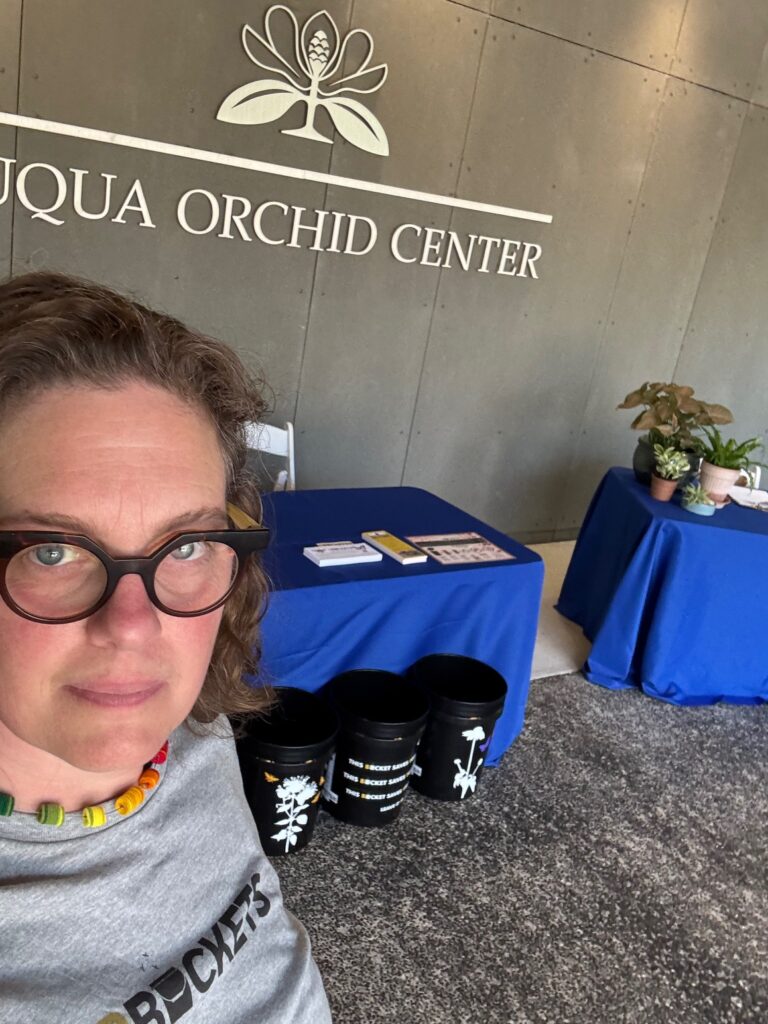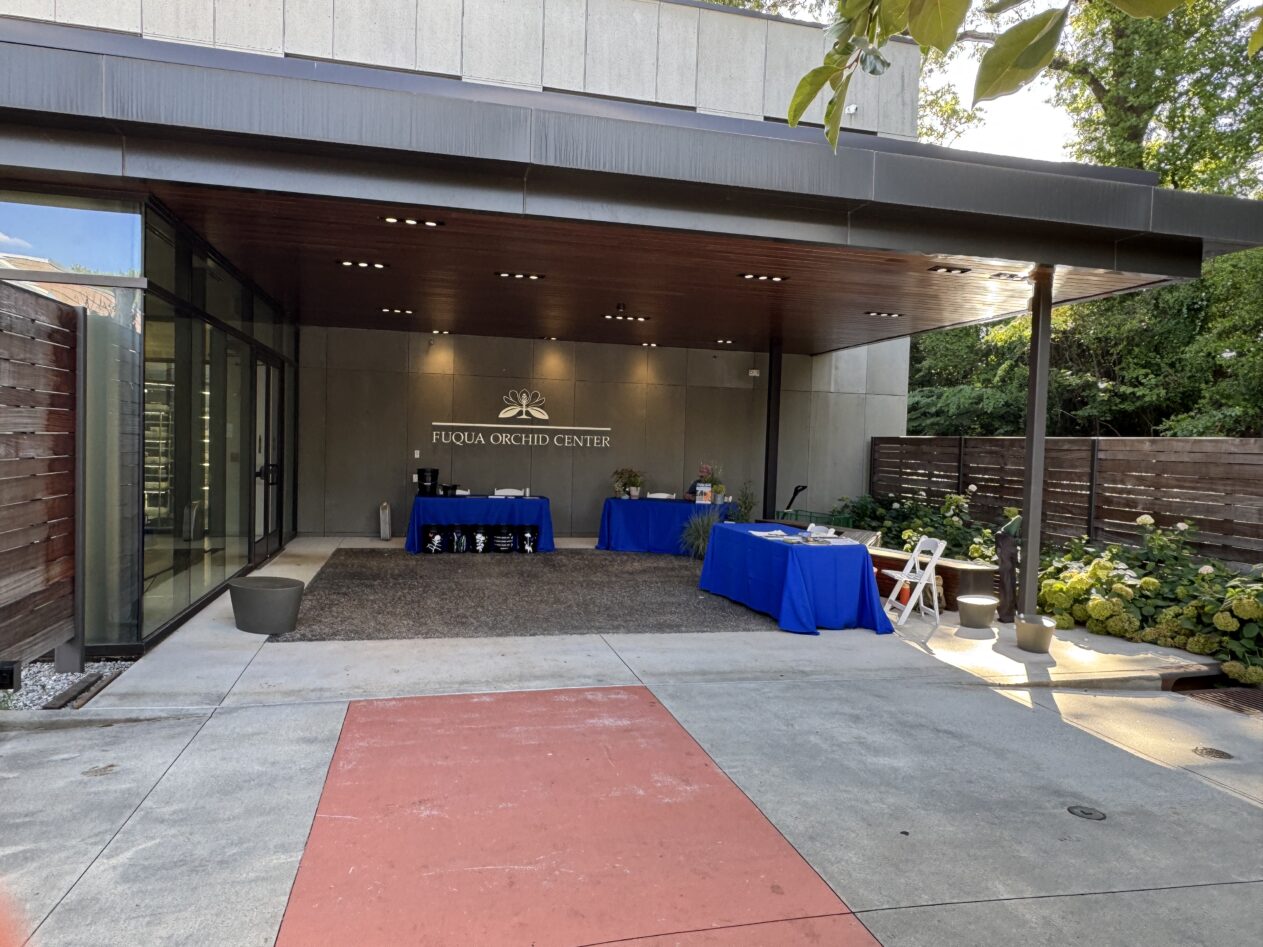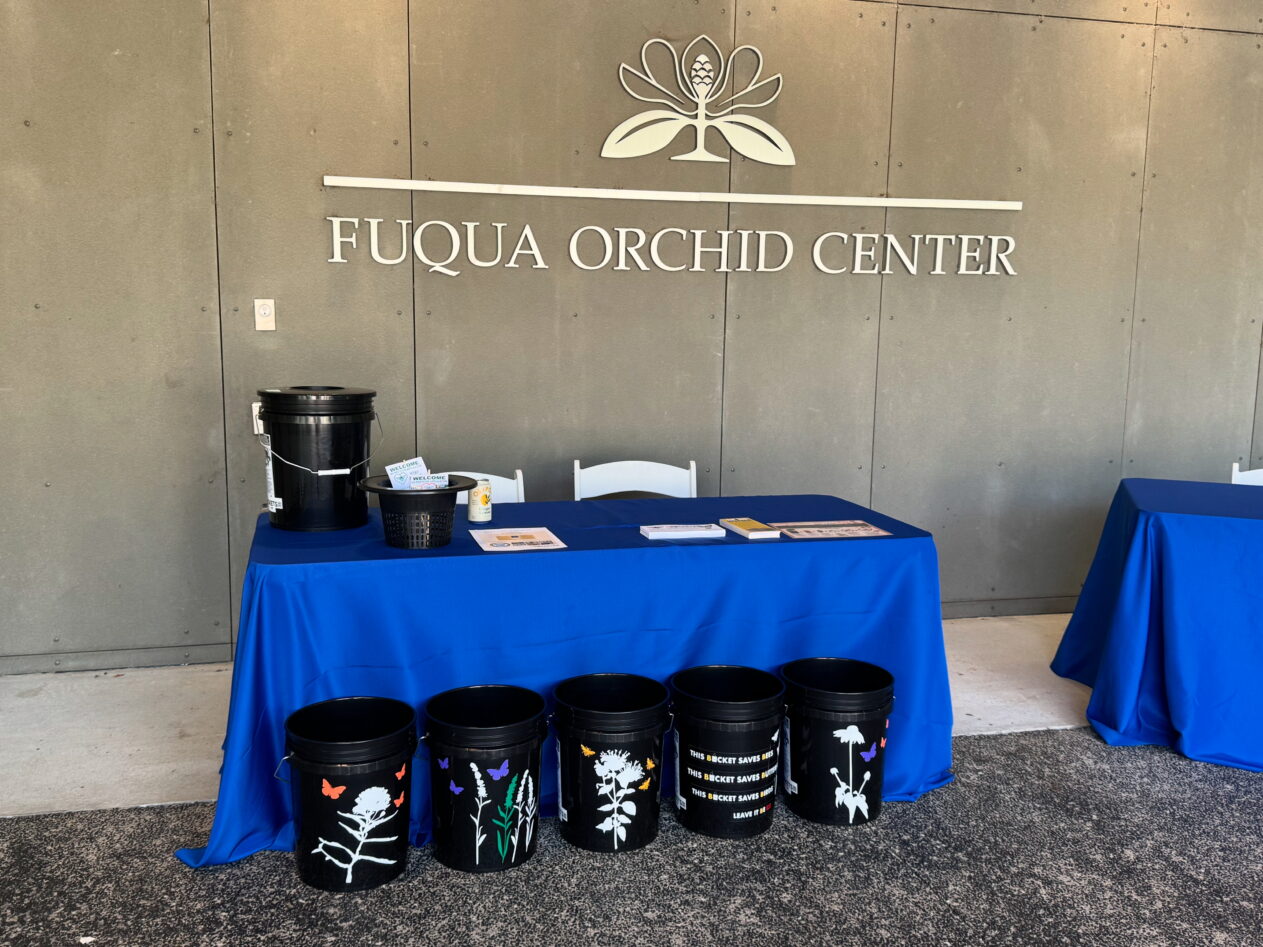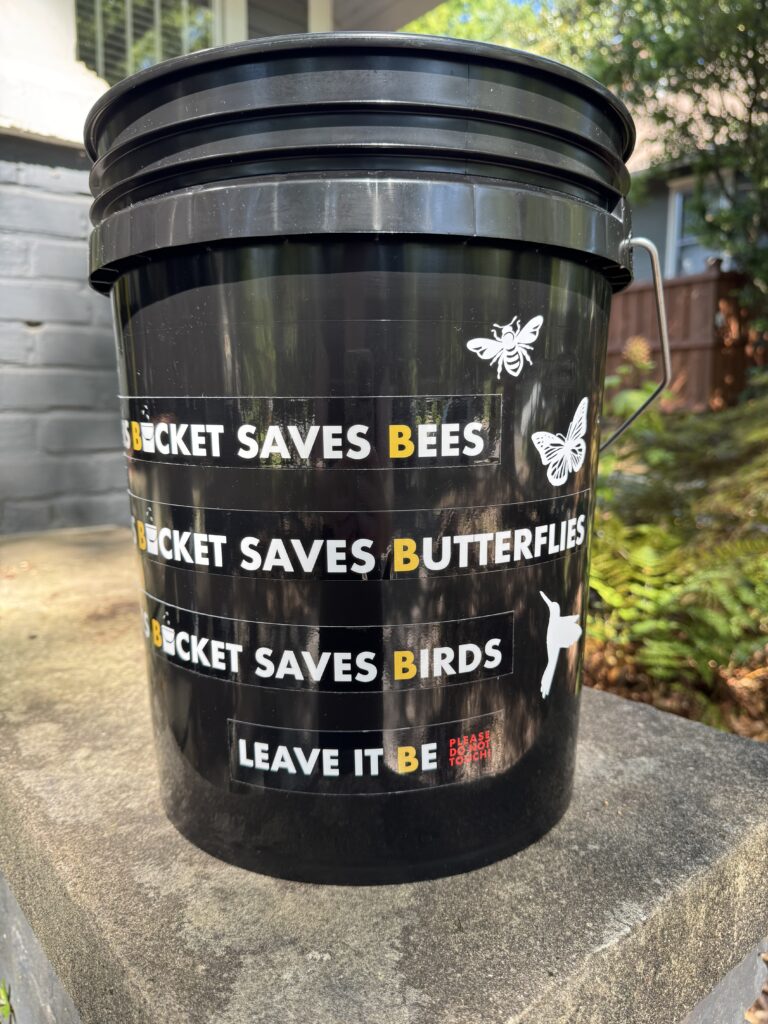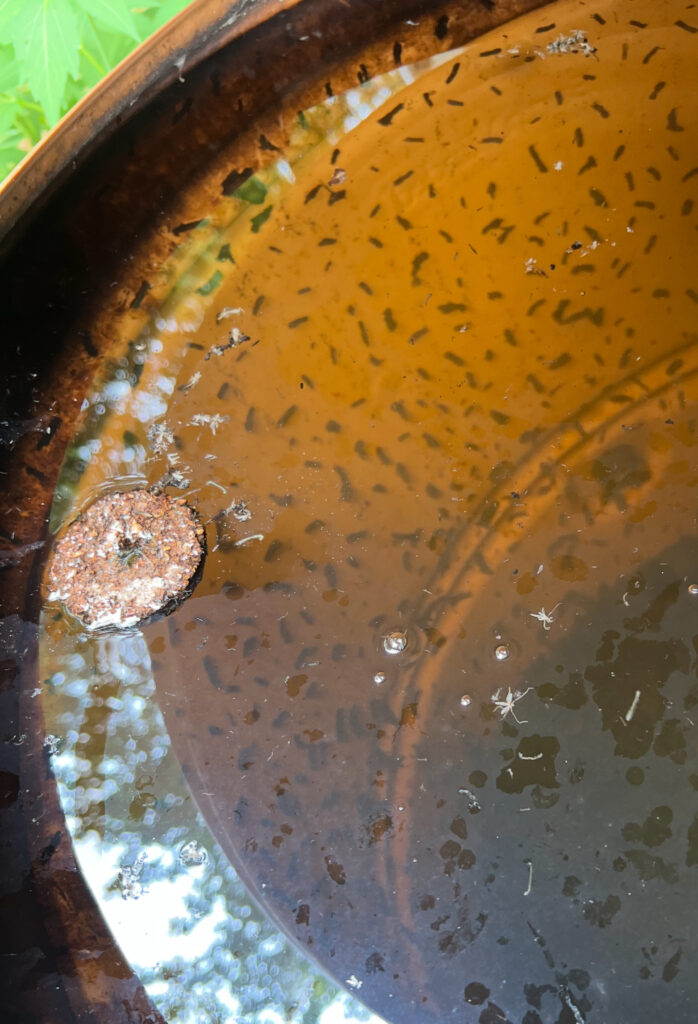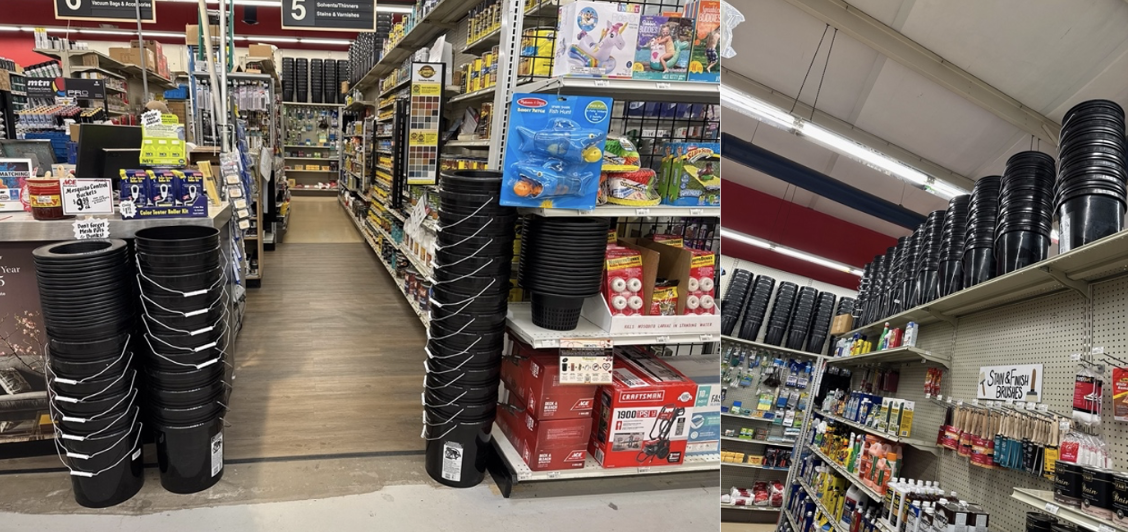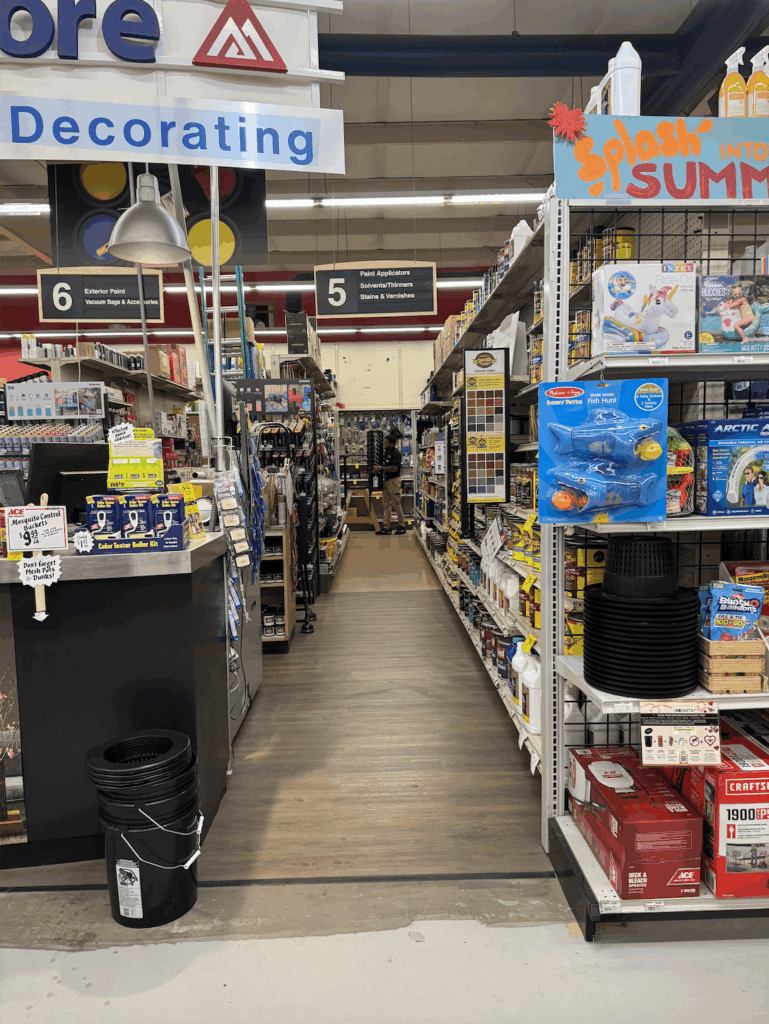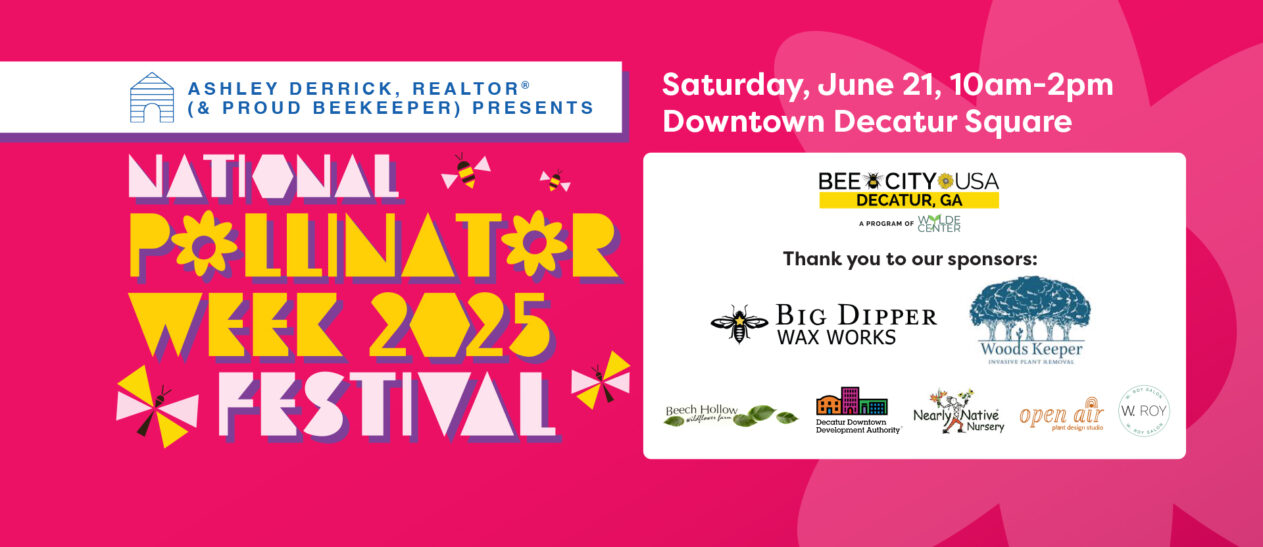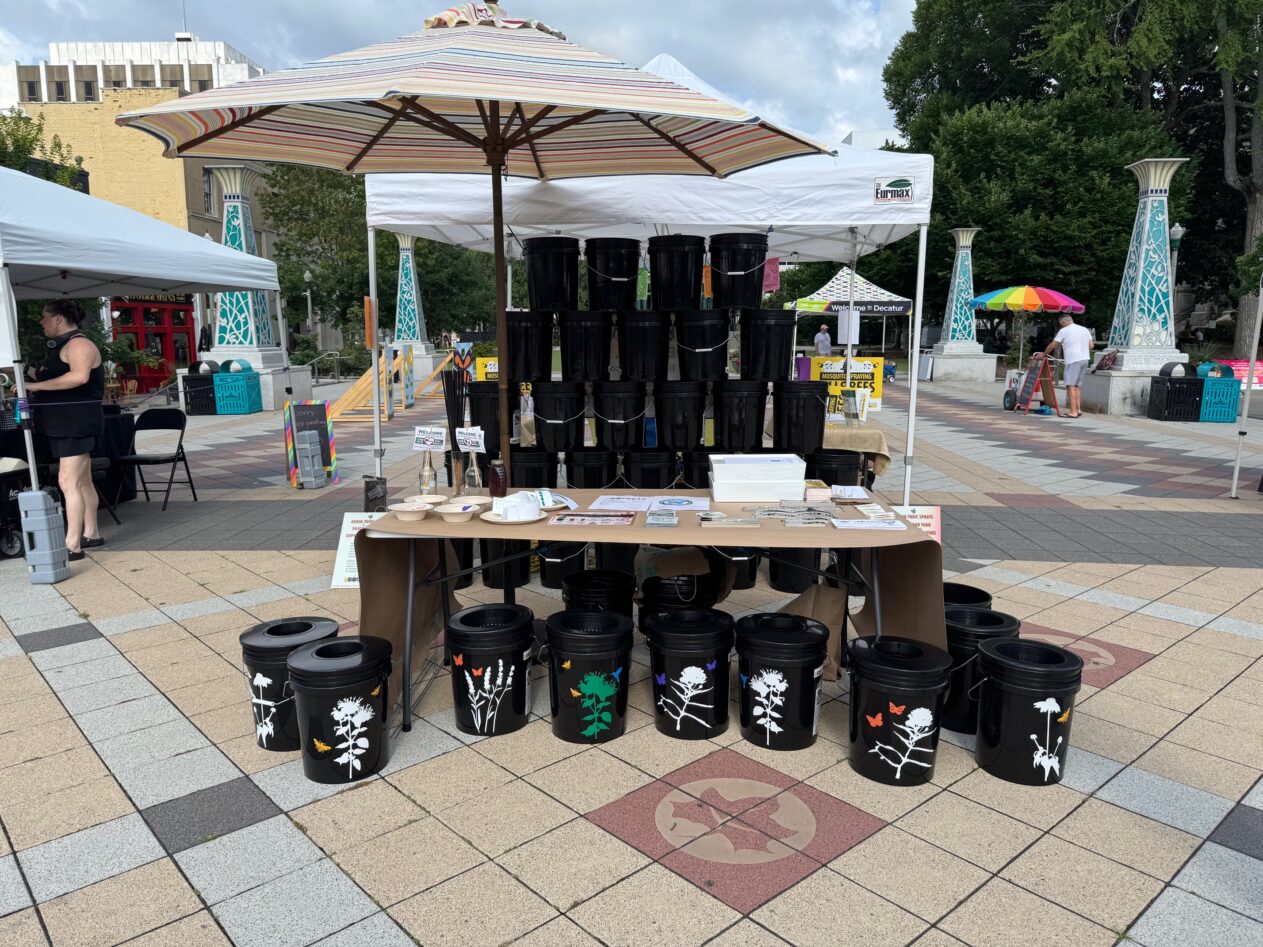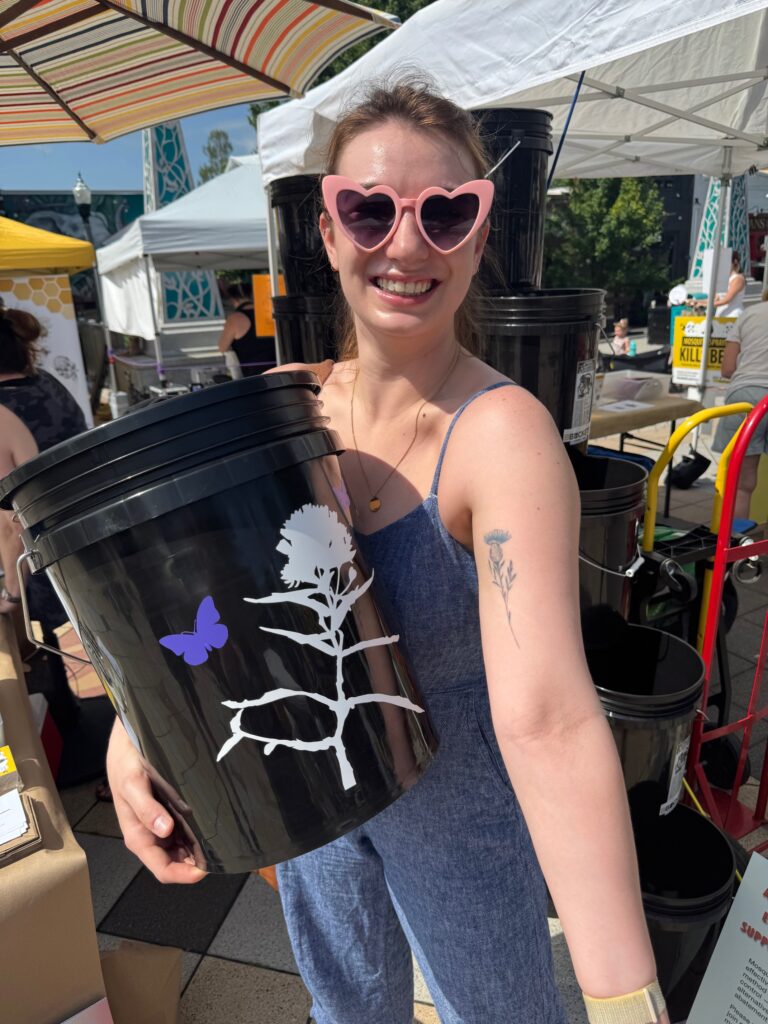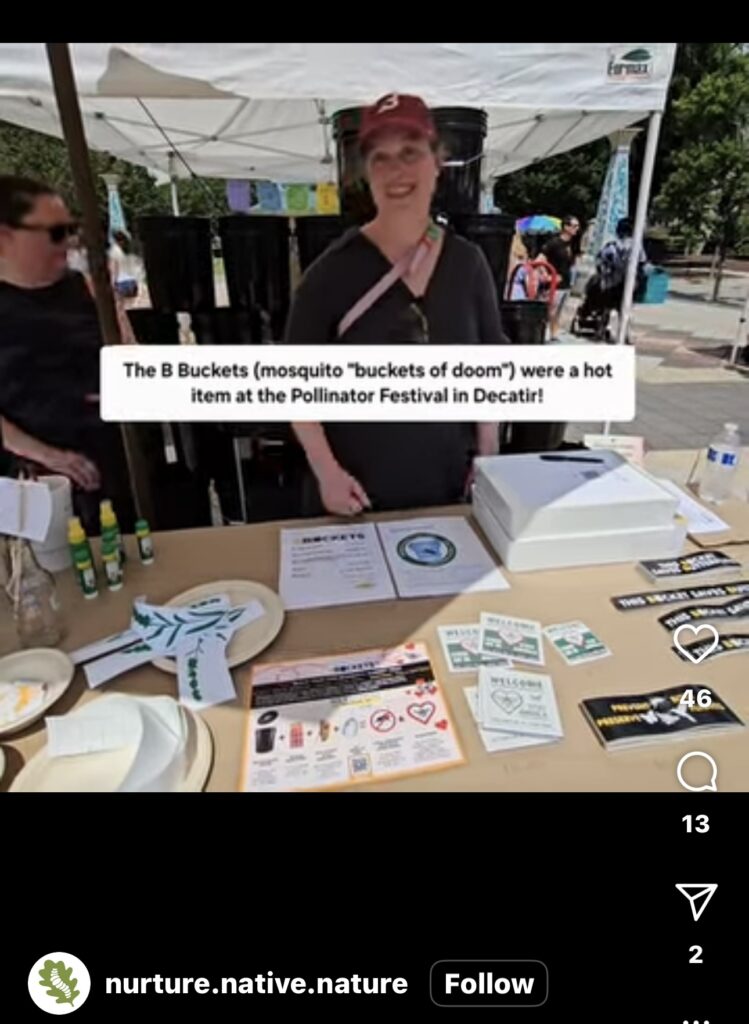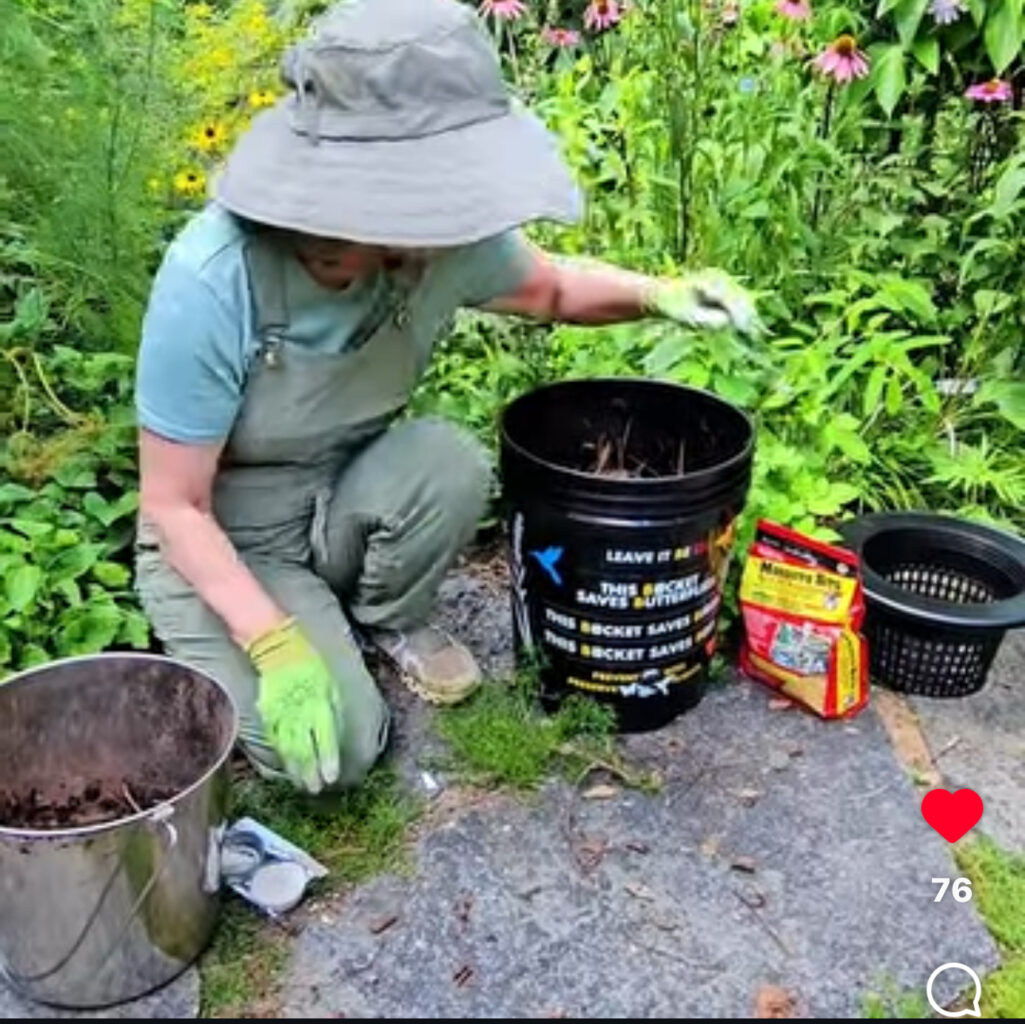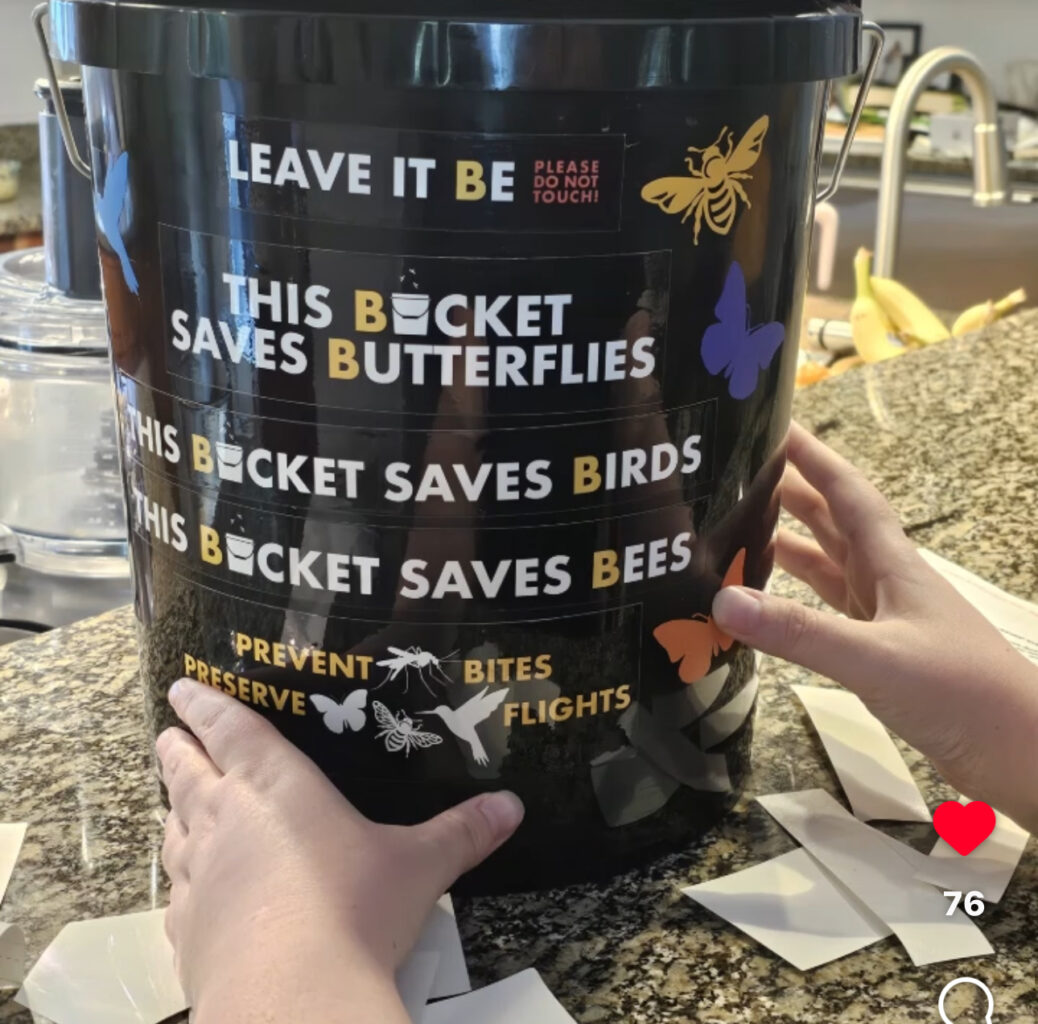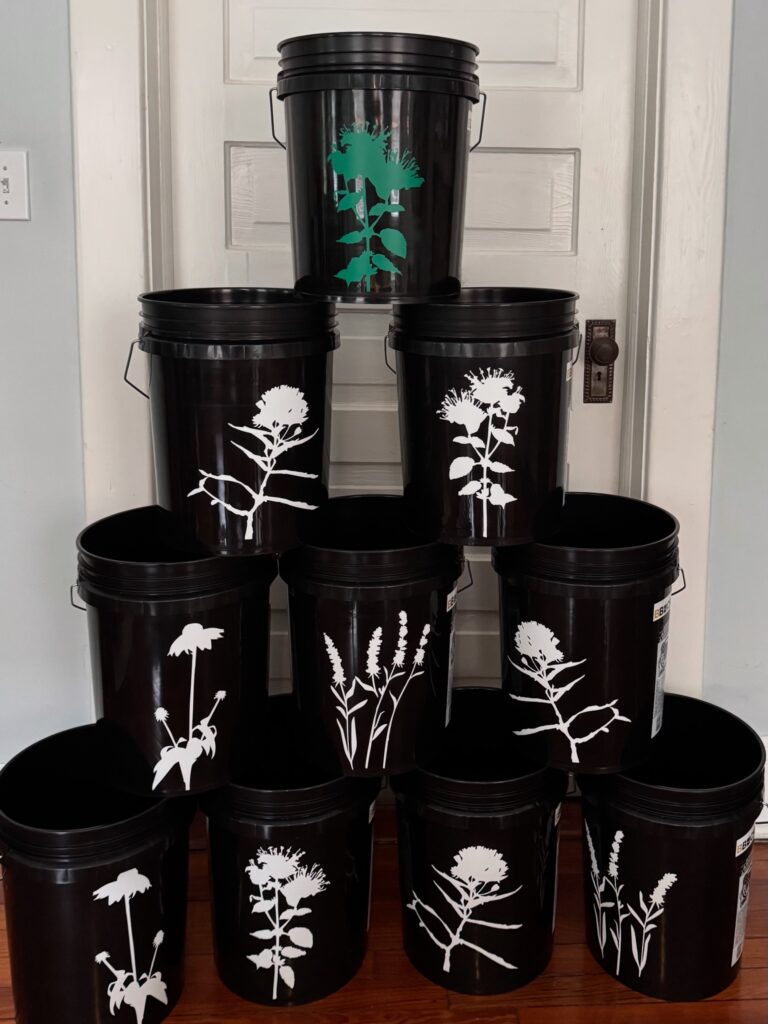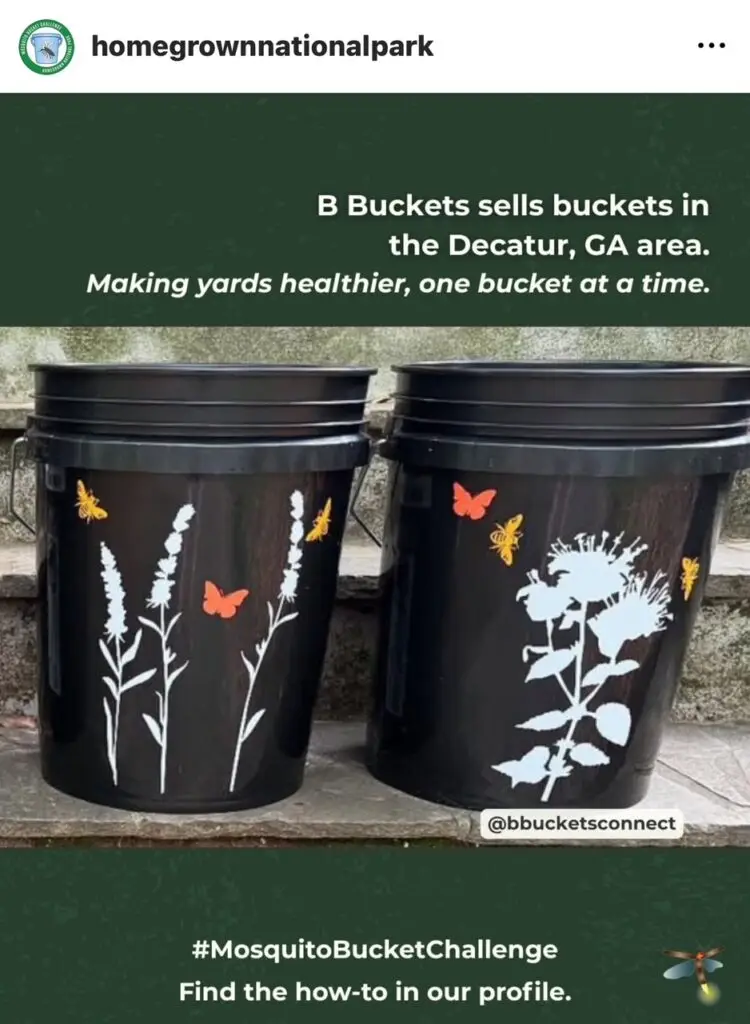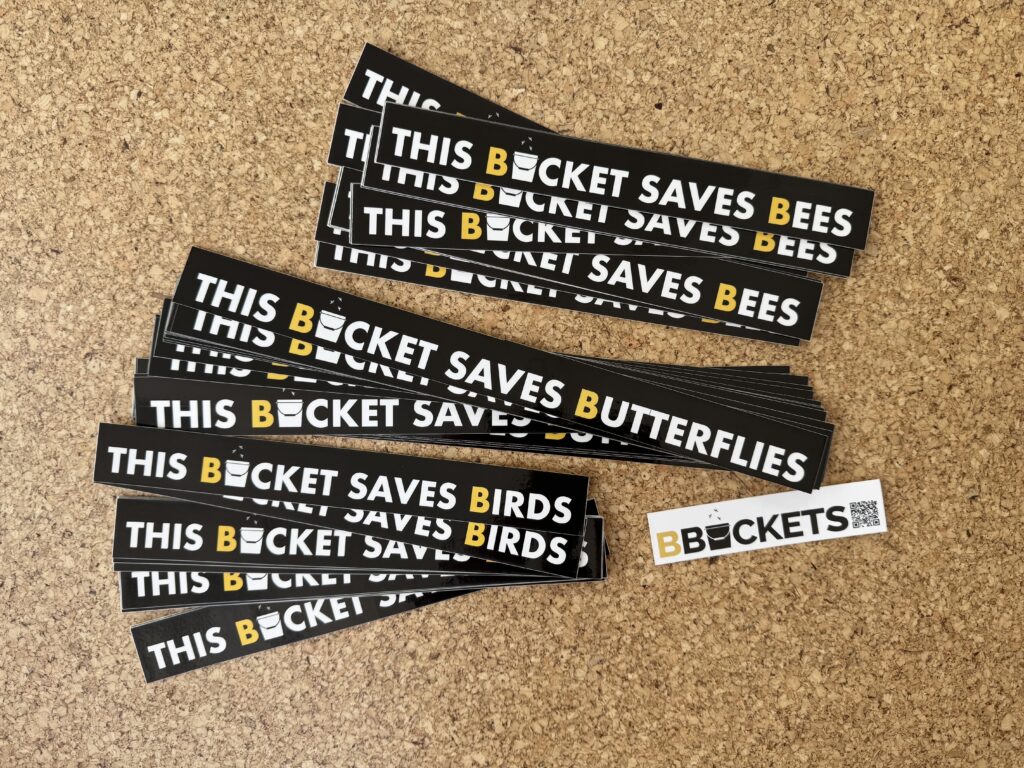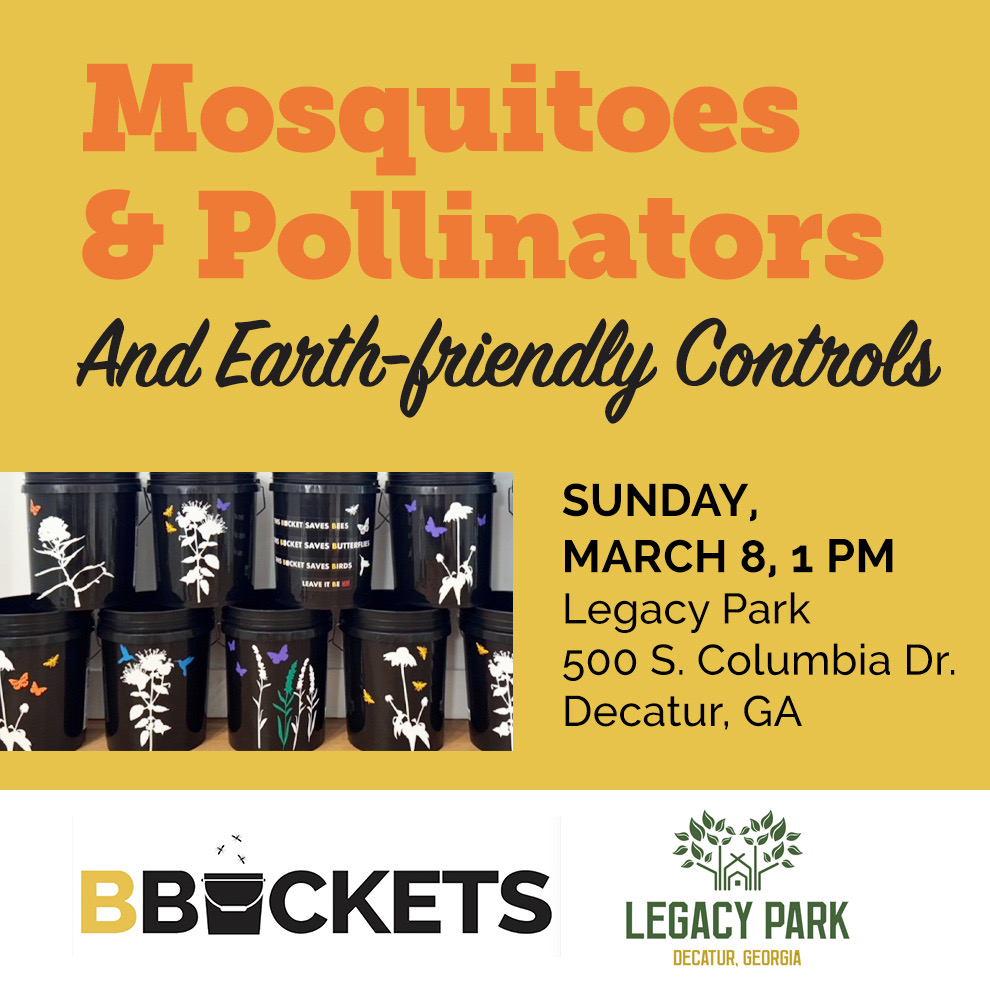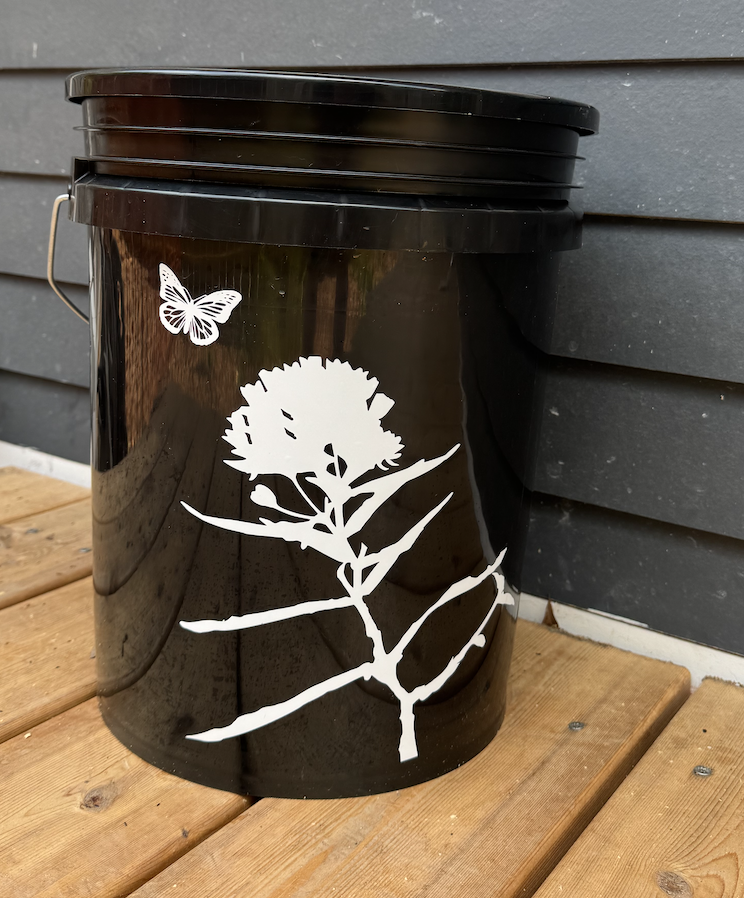
I just had a conversation with one of our neighbors from the street behind us, which was heartening and, for me, worth sharing.
Those of you following this blog will likely remember my post a few weeks ago (July 12) about my consultation with a family new to Decatur and their rain barrel, inherited from previous residents and teeming with mosquito larvae/pupae. They added a dunk to it, and then installed 8 buckets in their yard. They are on a street that I have frequented over the years, mostly for backyard parties with my kids. While my experiences have been sporadic, I have a sense that this particular stetch is quite and consistently challenging for mosquito control, as there is a slope to most of the yards toward a small stream at the back of the properties, which, even when buried or swaled (as is the case for the yard I am discussing), holds fairly constant moisture, inviting mosquitoes.
I had not realized, when I made buckets for pickup a few weeks ago, that they were going to the property that backs up to this rain-barrel-challenged yard. In any case, in this recent exchange, I learned that the buckets are already working and making a difference and reducing the number of mosquitoes in their yards. I was, of course, glad to hear it.
We are finding the same in our own yard, where the mosquito activity seemed to increase about a month ago; we had mosquitoes coming in our doors every time we opened them, it seemed – and with two dogs going in and out to our backyard frequently, we seemed to have constant, unwanted houseguests.
We installed a new bucket outside our back door, about 10 feet away, and moved the one closest to our front door about 3 feet farther from our porch (the bucket was working well – I noticed a lot of activity when I passed it and when I added dunks, but it was so close that mosquitoes could easily come inside with us).
I checked in with my family yesterday. Those changes, they agree, have resolved the issues, at least for now. Sometimes it is a matter of shifting locations; or adding buckets. It is a trial-and-error process and getting to know your property and watching the rain patterns and accumulations. It is also, as I think this example indicates, helpful when multiple and contiguous yards install buckets. More is more. Two of our adjacent neighbors (but only on one side) have had buckets for years; we’ve all doubled our buckets this summer. We believe they make a difference. And I am grateful.
Thanks, all! And please reach out if you think we can help look at and think on any challenges in your yards.

